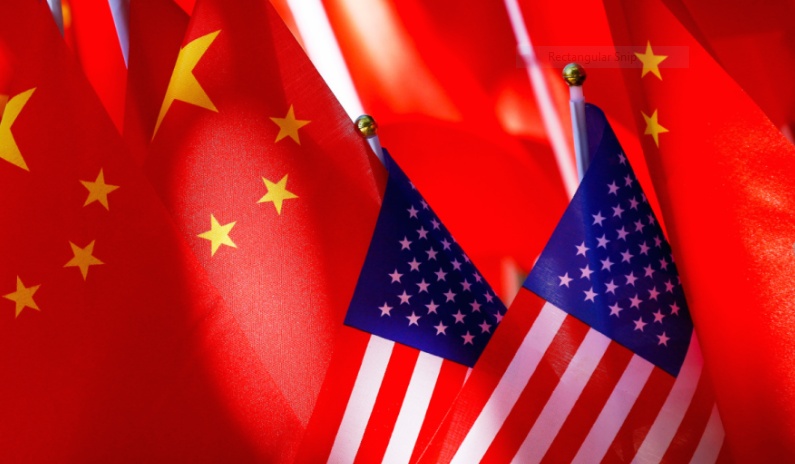Gambiaj.com – (WASHINGTON, DC) – China is taking a markedly different approach to U.S. President Donald Trump’s renewed trade war than America’s close neighbors, Canada and Mexico. While Canadian Prime Minister Justin Trudeau and Mexican President Claudia Sheinbaum have personally reached out to Trump in search of solutions after his latest round of tariffs, Chinese President Xi Jinping has refrained from doing so, signaling Beijing’s intent to engage only on equal footing.
Since Trump’s return to office seven weeks ago, his administration has escalated tariffs on Chinese imports by 20%. Unlike its response during Trump’s first term, China has been prepared for the aggressive economic measures, swiftly enacting retaliatory tariffs and other countermeasures. Beijing imposed new taxes on key U.S. agricultural imports, suspended lumber imports, and blacklisted 15 U.S. companies in response to Trump’s across-the-board tariff hikes.
“As Washington escalates the tariff, Beijing doesn’t see other options but to retaliate,” said Sun Yun, director of the China program at the Washington-based Stimson Center. “It doesn’t mean Beijing doesn’t want to negotiate, but it cannot be seen as begging for talks or mercy.”
The Chinese government’s defiance was underscored by a sharp statement from the Foreign Ministry following Trump’s latest 10% tariff increase. “If war is what the U.S. wants, be it a tariff war, a trade war, or any other type of war, we’re ready to fight till the end,” the ministry warned.
Analysts say Beijing has drawn from past experiences with Trump and is now more equipped to counteract his economic pressure tactics. Scott Kennedy, a trustee chair in Chinese business and economics at the Center for Strategic and International Studies, noted that the Chinese leadership is no longer caught off guard by Trump’s approach. “They’ve seen this before. These are the kind of things that they’ve anticipated,” Kennedy said.
China’s economic resilience has also improved since Trump’s first trade war in 2018. While the country’s economic growth has slowed, it remains near 5% annually, and China has significantly diversified its trade partnerships. By securing alternative sources for key imports such as soybeans from Brazil and Argentina, China has reduced its reliance on U.S. goods. Meanwhile, the percentage of Chinese exports bound for the U.S. has declined.
Xi Jinping, who has led China through both of Trump’s terms, is determined not to engage in negotiations from a position of weakness. “That’s not a scheduling issue, it’s leverage for China,” said Daniel Russel, vice president for international security and diplomacy at the Asia Society Policy Institute. “Xi won’t walk into a call if there’s a chance he’ll be harassed or humiliated and for both political and strategic reasons, Xi won’t play the role of a supplicant.”
Beijing’s response has been measured but firm. The government has built a diversified economic strategy that includes tariffs, import curbs, export controls, sanctions, and regulatory restrictions to counterbalance U.S. actions. Foreign Minister Wang Yi reinforced this stance during his annual press conference, stating that “no country should fantasize that it can suppress or contain China while developing good relations with China.” He added that while China remains open to cooperation, it will retaliate if the U.S. continues to exert pressure.
In contrast, Canada and Mexico have taken a more diplomatic approach. Trudeau and Sheinbaum are navigating a reversal of Trump’s earlier trade policies, with tariffs imposed and then postponed twice on select goods. Trudeau traveled to Mar-a-Lago in December to personally engage Trump after tariff threats, but his efforts were met with fresh duties. In response, Canada has vowed to retaliate forcefully. “This is a time to hit back hard and to demonstrate that a fight with Canada will have no winners,” Trudeau said while announcing countermeasures. Sheinbaum echoed a similar sentiment, stating, “No one wins with this decision.”
Despite their outreach, analysts suggest that Trump’s approach to trade remains unpredictable and combative. “Beijing has seen enough to know that appeasing Trump doesn’t work,” Russel noted. “In the first go-around, Trudeau and Sheinbaum bought a little time, but the pressure only came roaring back stronger.”
As the trade conflict deepens, China appears determined to hold its ground. With a more prepared and resilient economy, Beijing is signaling that this time, it will not be the one making the first call.









